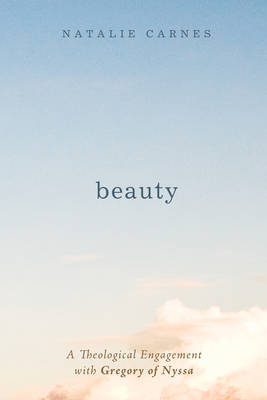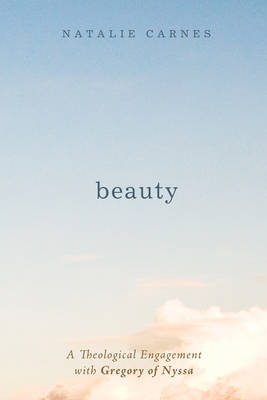
- Afhalen na 1 uur in een winkel met voorraad
- Gratis thuislevering in België vanaf € 30
- Ruim aanbod met 7 miljoen producten
- Afhalen na 1 uur in een winkel met voorraad
- Gratis thuislevering in België vanaf € 30
- Ruim aanbod met 7 miljoen producten
Zoeken
€ 74,95
+ 149 punten
Uitvoering
Omschrijving
Beauty engages fourth-century bishop Gregory of Nyssa to address beauty's place in theology and the broader world. With the recent resurgence of attention to beauty among theologians, questions still remain about what exactly beauty is, how it is perceived, and whether we should celebrate its return. If beauty fell out of favor because it was seen to distract from the weightier concerns of poverty and suffering--because it can even be a tool of oppression--why should we laud it now? Gregory's writings offer surprisingly rich and relevant reflections that can move contemporary conversations beyond current impasses and critiques of beauty. Drawing Gregory into conversation with such disparate voices as novelist J. M. Coetzee and art theorist Kaja Silverman, Beauty displays the importance of beauty to theology and theology to beauty in a discussion that bridges ancient and modern, practical and theoretical, secular and religious.
Specificaties
Betrokkenen
- Auteur(s):
- Uitgeverij:
Inhoud
- Aantal bladzijden:
- 282
- Taal:
- Engels
Eigenschappen
- Productcode (EAN):
- 9781498222334
- Verschijningsdatum:
- 13/11/2014
- Uitvoering:
- Hardcover
- Formaat:
- Genaaid
- Afmetingen:
- 152 mm x 229 mm
- Gewicht:
- 576 g

Alleen bij Standaard Boekhandel
+ 149 punten op je klantenkaart van Standaard Boekhandel
Beoordelingen
We publiceren alleen reviews die voldoen aan de voorwaarden voor reviews. Bekijk onze voorwaarden voor reviews.







